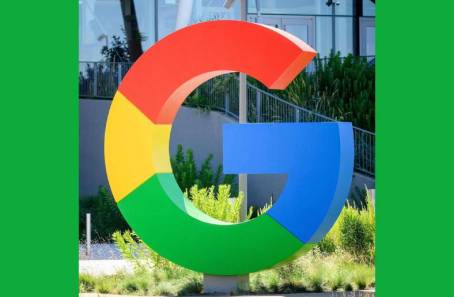Monday, a U.S. District Court judge said that Google broke the law by keeping a monopoly on online search. Google will now appeal that decision.
Judge Amit P. Mehta of the U.S. District Court for the District of Columbia’s decision is a big loss for Google. If the decision stands, it could change how the company does business and even how the internet is built.
Google paid companies like Apple to make its search engine the default on their products and web browsers, according to Mehta. This was an abuse of its monopoly power in the search business. It was filed by the Justice Department and states against Google in 2020, and the case began in court in September 2023.
Google pays companies like Apple, Samsung, and Mozilla billions of dollars to put their ads at the top of web browsers and on smartphones. Only in 2021, Google spent $26 billion to be the search engine that Apple and Android users used by default. A report from The New York Times says that Apple got about $18 billion of that money. Google gives Apple 36% of the money it makes from search ads in Safari. The government says that rivals can’t build their own search engines to the level of size that would give them the data and reach they need to stay competitive because they have to pay for the dominant position.
The court came to the following conclusion after carefully looking at the evidence and witness statements: Google is a monopolist and has behaved like one to keep its monopoly. Mehta wrote this in his Monday ruling. “Part 2 of the Sherman Act has been broken.”
It is against the law for anyone or any company to monopolize, try to monopolize, or work together to monopolize any part of trade or commerce (Section 2).
A Google executive named Kent Walker told Parhlo World that the company will be appealing the ruling. Walker repeated Google’s claims that it has used its market power to create the best and most useful search engine, which has been good for both users and marketers.
Walker told Parhlo World, “This decision recognizes that Google has the best search engine, but it also says that we shouldn’t be able to make it easy for people to find.” “We agree with the Court’s decision that Google is “the industry’s highest quality search engine,” which has earned the trust of hundreds of millions of daily users. The Court also said that Google “has long been the best search engine, especially on mobile devices,” “has continued to innovate in search,” and “Apple and Mozilla occasionally assess Google’s search quality relative to its rivals and find Google’s to be superior.”
For years, the case U.S. et al. v. Google went on and on, and last year it came to a 10-week hearing. In 2020, the Department of Justice and the attorneys general of 38 states and territories, led by Colorado and Nebraska, sued Google for unfairly keeping out search competitors like Bing and DuckDuckGo. The suits were similar but different. The DOJ thought that Google had 90% of the search market, but Google didn’t agree with that number.
As an election year approaches, the Justice Department’s victory in the case is a big one. If former President Donald Trump wins a second term, he will almost certainly take a much less hands-on and more deregulating approach to tech. Lina Khan, who President Joe Biden chose to lead the Federal Trade Commission, has a reputation for going after big tech, especially when it comes to antitrust law. This is something that many of those companies don’t like.
A lot of other antitrust claims are going through the courts right now, and this case could be used as a model. The DOJ has sued Apple for making it hard for people to get rid of their iPhones. The FTC has also recently sued Amazon for making it hard for sellers to sell on its online market and Meta for getting rid of early rivals.
The decision made by Judge Mehta on Monday could also affect the result of the second antitrust suit brought by the Justice Department against Google. This suit claims that Google illegally monopolized the market for digital ads. The arguments in that case are set to start on September 9.
Google’s actions will be fixed by the judge at some point. He could tell the company to sell off parts of its search business or change how it does business. The view could be appealed, and the final decision could be very different, as was the case with Microsoft in the famous antitrust case during the dot-com era.
Judge Thomas Penfield Jackson said that Microsoft broke antitrust rules and told the company to be split into two separate businesses. Microsoft made an appeal, and the breakup order was rejected by an appeals court. However, Microsoft still had to do some things that experts say could affect Mehta’s behavioral remedies for Google. As part of its deal, Microsoft had to let other companies use its APIs and set up a panel to make sure it followed the rules.
Update: The original version of this story came out on August 5 at 12:20 p.m. PT. It has been changed to include more details and background from Google.
What do you say about this story? Visit Parhlo World For more.


